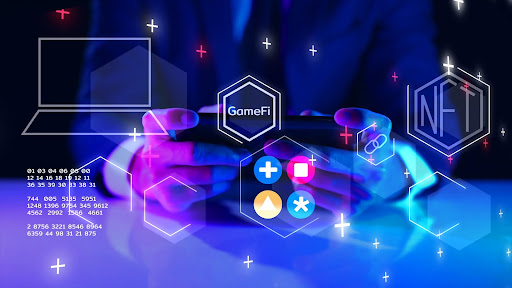
Non-Fungible Tokens (NFTs) are digital assets, similar to cryptocurrencies, but with one major difference: each NFT is unique and non-interchangeable. This makes them different from traditional digital tokens that are fungible—meaning they can be exchanged easily, like a dollar bill for another. Unlike these conventional tokens, NFTs represent ownership of unique digital items like art, videos, sports memorabilia, or game items (e.g., rare Pokemon cards).
How are NFTs issued and traded?
The most common platform for the issuance and trading of NFTs is the Ethereum blockchain. This allows them to be tracked on a distributed ledger which verifies that each token represents an exclusive item or asset. The holder of an NFT holds the only copy of it and has exclusive rights to its usage and resale value.
Another popular platform is Polygon.
NFTs and digital artists
NFTs have become popular with digital artists who use them to authenticate and monetize their artwork. They create artwork in the form of digital files or animations which are then stored as an NFT on the blockchain using smart contracts where potential buyers can view and purchase it with cryptocurrency. Buyers then become the proud owners of a wholly unique piece of artwork that is securely stored on the blockchain with their name associated as its rightful owner.
Virtual gaming
Another example of NFT use is virtual gaming land ownership. Players can buy virtual plots in video games and own them exclusively within those particular game worlds, making them easy to trade between players within that game world for cryptocurrency or other items in the game itself.
A prime example of a next-gen NFT metagame is Chainers, a world of endless possibilities. Design anything you can imagine to customize your virtual world, unlock thrilling gameplay experiences and join other web 3.0 funseekers in this limitless creative playground.
A revolutionary way of tracking ownership
In conclusion, Non-Fungible Tokens provide an unprecedented way for users—from artists to gamers—to authenticate, track and even monetize their own creations or virtual assets without having to rely on centralized platforms such as galleries or online stores whose fees can significantly reduce profits from sales made by creators themselves. By providing an immutable record of ownership through their use of smart contracts on blockchain technology, NFTs offer a secure way of buying and selling digital assets without any risk of counterfeiting or double spending—a feature that could revolutionize many different industries in years to come.
Rising popularity
NFTs have been gaining a lot of traction in recent years, and their popularity is rapidly increasing. This is due to their unique ability to act as digital certificates for ownership of rare items or digital assets. The use cases for NFTs are becoming more varied and diverse, ranging from the sale of art pieces, sports memorabilia, virtual gaming land ownership, and even tokens that can be used within crypto games.
One of the main reasons for the surge in NFTs’ popularity is their ease of use. With the emergence of platforms such as Ethereum and EOS, users can easily access a variety of applications that facilitate the buying and selling of Non-Fungible Tokens with just a few clicks. Other benefits include the security provided by blockchain technology, which prevents counterfeiting or double spending; immutable records of ownership which guarantee buyers exclusive rights to their purchases; and increased liquidity which allows sellers to get better prices for their items on secondary markets.
Additionally, NFTs offer an unprecedented opportunity for content creators—including artists, musicians, and game developers—to authenticate and monetize their creations without having to rely on third-party services such as galleries or online stores whose fees can significantly reduce profits from sales made by content creators themselves.
Finally, we expect NFTs will continue to rise in popularity in 2023 due to increasing demand from potential buyers who are interested in owning digital assets that are both unique and valuable. Furthermore, with more people becoming aware of cryptocurrency technology as well as increasing government regulations regarding its use, it is likely that we will see an even larger adoption rate of NFTs in the coming years.
You may be interested in: How NFTs Are Influencing Modern Business

